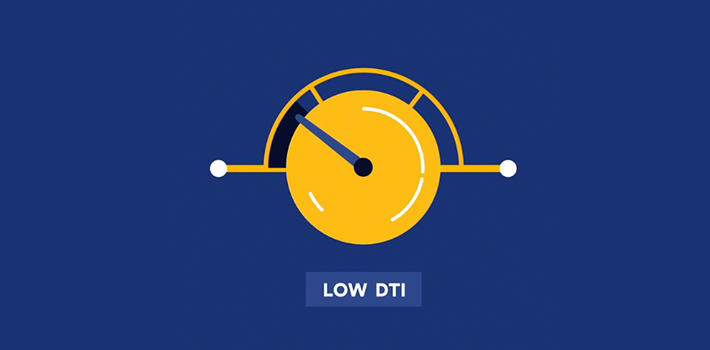What is debt-to-income ratio?
If you’re applying for a mortgage, personal loan, or refinancing your student loans, you’ve probably heard the term “DTI” tossed around. Your “DTI” is your debt-to-income ratio, which measures the percentage of your income that goes to paying off debt. Essentially, your DTI is your total monthly debt payments (including housing costs, student loans, credit cards, and auto loans) divided by your gross monthly income.
How is your DTI calculated?
First, let’s break it down. Your DTI, or debt-to-income ratio, is based on two numbers:
- Your total recurring monthly debt payments, including student loans, minimum credit card payments, auto loans, child support, alimony, etc. This does not include any non-debt related payments such as rent, groceries, entertainment, utilities, etc. – only payments you’re making on debt you owe.
- Your gross (before taxes and deductions) monthly income.
DTI is calculated by dividing your total recurring monthly debt payments by your gross monthly income, which produces a percentage (example: $4,500 total recurring monthly debt payments/$15,000 gross monthly income = a DTI of 30%). This percentage is used by lenders as a yardstick to determine how risky it might be for them to lend money to you.
If you have a high DTI, meaning you have a lot of debt payments relative to your income, lenders will likely view you as a higher risk borrower. This is because the more debt obligations you have, the greater the chance you might not pay back your loans (and your lenders like to be paid back!)
If you do have a high DTI, look at your debt load to see where you might make some changes. A good place to start is high-cost credit card debt. If you’re able to pay that debt down, you’ll reduce your monthly payments and lower your DTI. Check your DTI using our calculator below.
How your DTI can affect getting a mortgage
In 2014, the Consumer Financial Protection Bureau (CPFB) set 43% as the maximum DTI a buyer could have and still get a qualified mortgage. However, the CFPB published a new rule which revises the definition of a qualified mortgage by eliminating the 43% DTI limit and replacing it with priced-based thresholds. . Although the new rule won’t be effective until Oct. 1, 2022, Fannie Mae and Freddie Mac started requiring lenders to observe the rule as of July 1, 2021. So, what DTI do you need now?
Although many lenders will offer mortgages to borrowers who have DTI’s of 50%, or sometimes higher, the CFPB generally recommends that homeowners should aim for a DTI of around 36% or less[1] (home mortgage is included in this ratio), and renters should aim for 15-20% or less[2] (rent is not included in this ratio). As you can see, the lower the DTI, the better.
What’s the impact of DTI for student loan refi?
Your DTI also plays a role in whether you can refinance your student loans. There isn’t a hard and fast rule of thumb for the maximum DTI to have when refinancing your student loans but typically, a DTI of 40% or lower[3] is considered a reasonable threshold when you’re applying to refinance — the lower your DTI is, the higher the chance you’ll qualify for a new loan with a lower interest rate.
Putting it all together: DTI, credit score, and more
Keep in mind there are several criteria lenders use to judge your creditworthiness and DTI is just one of them. If you have a high DTI but a good credit score (anything 680 and above) and good credit history, your DTI might play less of a role in the lender’s decision. Thus, if you’re a physician with significant debt, you might still qualify for a loan despite having a high DTI if you have a good credit score and history. Many lenders offer physician mortgages for this reason.
What makes a good debt-to-income ratio
It’s good to have a low DTI because it increases your ability to take on debt if you need to, and it also indicates that you’re likely able to manage the debt load you currently have. If you’re looking to get a new loan, it’s good to know how your DTI is calculated and whether yours may help, or hurt, your chances of qualifying. Normally in life, the higher the score, the better. In the case of DTI, low is the way to go.










